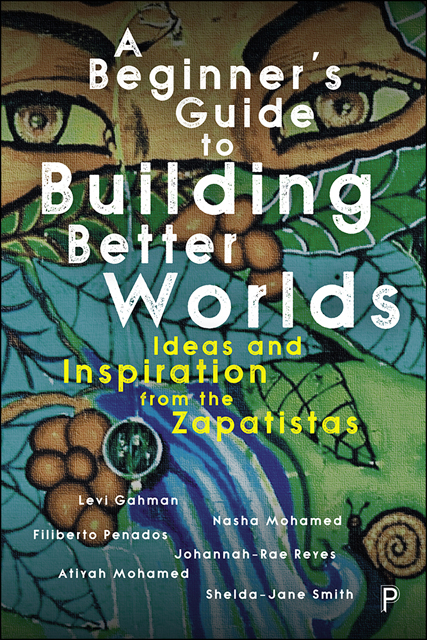Book contents
- Frontmatter
- Dedication
- Contents
- List of figures
- Guilty parties
- 1 Introduction: from liberal bystanding to emancipatory praxis
- 2 A world where many worlds fit
- 3 The coloniser’s model/neoliberal state of the world
- 4 Modernity-coloniality and Indigenous realities
- 5 Dispossession, extractivism and violence
- 6 Critical consciousness and praxis
- 7 Political education and radical pedagogy
- 8 Gender justice and social reproduction
- 9 Health, food sovereignty, solidarity economies
- 10 A battle for the soul of education
- Notes
- References
- Index
5 - Dispossession, extractivism and violence
Published online by Cambridge University Press: 13 October 2022
- Frontmatter
- Dedication
- Contents
- List of figures
- Guilty parties
- 1 Introduction: from liberal bystanding to emancipatory praxis
- 2 A world where many worlds fit
- 3 The coloniser’s model/neoliberal state of the world
- 4 Modernity-coloniality and Indigenous realities
- 5 Dispossession, extractivism and violence
- 6 Critical consciousness and praxis
- 7 Political education and radical pedagogy
- 8 Gender justice and social reproduction
- 9 Health, food sovereignty, solidarity economies
- 10 A battle for the soul of education
- Notes
- References
- Index
Summary
The understanding that a system is responsible for these pains. The executioner is an exploitative, patriarchal, pyramidal, racist, thievish, and criminal system: capitalism.
The EZLNTo understand extractivism, it is essential to realise it is rooted in dispossession, has its historical origins in colonialism, and is now facilitated primarily by corporations and states. Extraction has traditionally and continues to be a hallmark of (neo)imperial domination and neoliberal policies (for example, ‘cash crops’, fossil fuels, minerals, biofuels, precious metals, water, livestock, timber/logging). Put simply, extractivism is a capitalistic method of acquiring wealth through the withdrawal of ‘resources’ or ‘raw materials’ from either ‘conquered’ (read, dispossessed) lands or territories that were encroached on, privatised and earmarked for commodification. After extraction, said resources and raw materials are transported for production, manufactured into value-added retail goods and shipped back to a respective metropole or placed on the global marketplace as stock suitable for consumption and disposal. Over centuries, the terms ‘raw material’ and ‘natural/human resources’ have been used and expanded to include privatising not only land, minerals and fossil fuels, but also fishing, farming, forestry and even humans. The punchy and all too exact axioms ‘property is theft’ and ‘accumulation by dispossession’ are each inextricably linked to the enclosure, privatisation and extraction of the commons, that is, the colonial enterprise and neoliberal capitalism. Unsurprisingly, the planet and all its inhabitants are suffering the consequences. Part of the Zapatista resistance is confronting this.
Because there is a massive imbalance between the amount of ‘raw materials’ being extracted over short periods of time and the brief period allowed to ecosystems to recuperate and replenish, the extractive industry is effectively cannibalising itself. The corporations and states that are endorsing and continuing to engage in extractivism also have little to no regard for the types of relationships and ways of being that Indigenous and peasant communities have with land and are beholden to. What results is the dismissal of any worldviews that do not align with liberal ideals and the prerogatives of entrepreneurial capitalism, which poses a major threat to rivers, soils, oceans, forests, plants, animals, the climate and humanity.
- Type
- Chapter
- Information
- A Beginner’s Guide to Building Better WorldsIdeas and Inspiration from the Zapatistas, pp. 58 - 69Publisher: Bristol University PressPrint publication year: 2022



